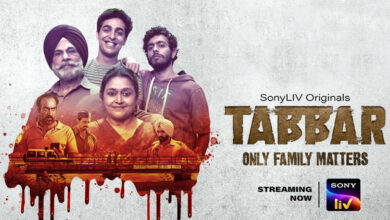Masters of the Air Review: A Plot Full of Emotions, and Historically Perfect
Cast: Austin Butler, Callum Turner, Barry Keogan, Ncuti Gatwa
Created By: John Shiban, John Orloff
Streaming Platform: Apple TV+
Filmyhype.com Ratings: 4/5 (Four Stars)
It’s unbelievable, they managed to do it once again with Masters of the Air. Twenty-three years after Band of Brothers and thirteen years after The Pacific, Steven Spielberg and Tom Hanks have once again told the Second World War through the common faces and the anything-but-common deeds of the unknown heroes who fought in it. With Masters of the Air this time they turned their attention to the battle of the skies, focusing on the US Army’s 100th Bomb Group. The series produced for Apple TV+ is inspired by the book Masters of the Air: America’s Bomber Boys Who Fought the Air War Against Nazi Germany, written by Donald L. Miller. In 2010, starting from the autobiographies of Sledge and Leckie, The Pacific was released, produced by Spielberg and Hanks with Gary Goetzman. With a change of front, the Marines and the Japanese front ended up in the spotlight, from Pearl Harbor to Iwo Jima.
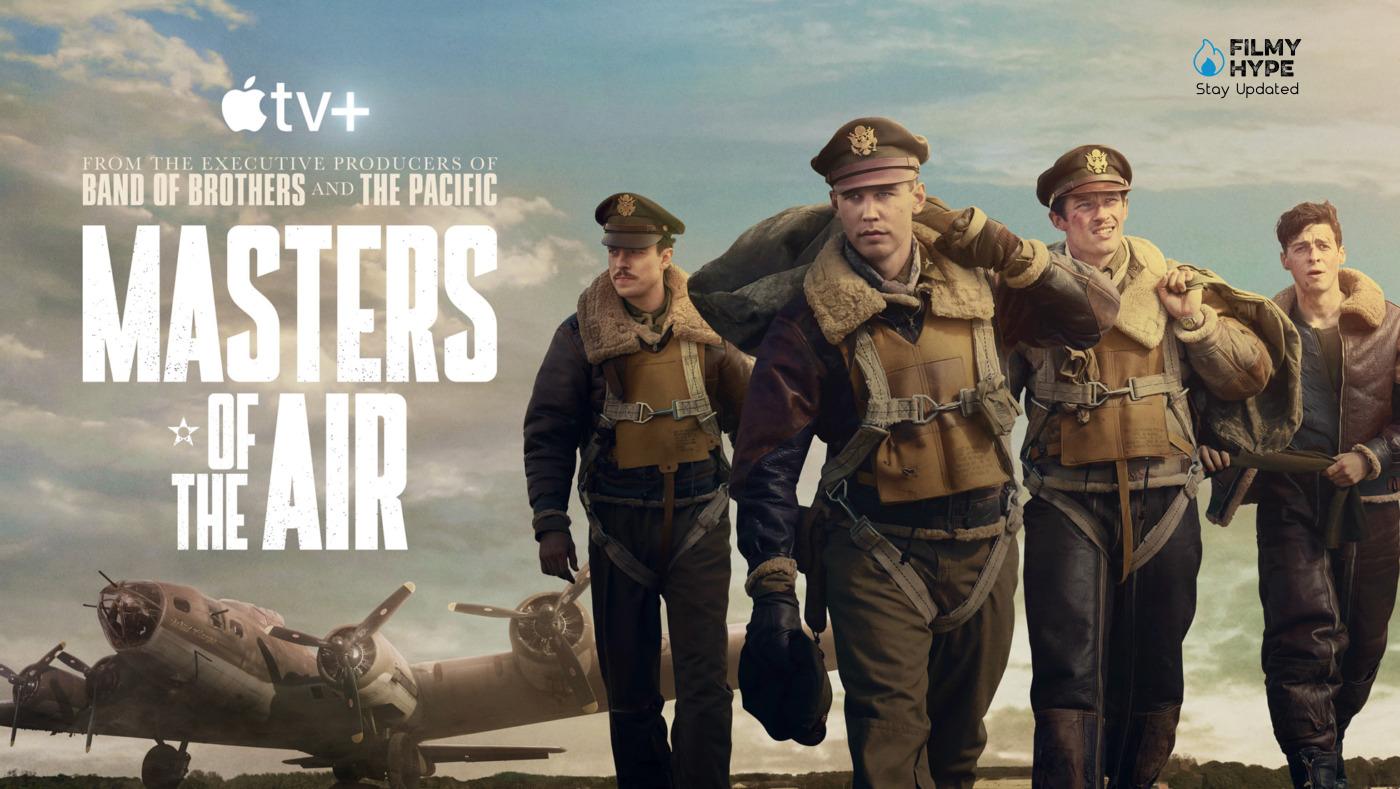
The rest, as they say, is history, as both titles have become TV milestones. Now, after a 14-year wait, Spielberg, Hanks, and Goetzman join forces with director Cary Joji Fukunaga and showrunners John Shiban and John Orloff to tell another face of World War II and complete the trilogy. This time we talk about aviation and the lives of the pilots of the legendary 100th Bomb Group, starting from the book of the same name by Donald L. Miller. The broadcaster is Apple TV+, and the title is Masters of the Air: here, finally, is our review. Based on the book of the same name by Donald L. Miller and written by John Orloff, Masters of the Air follows the men of the 100th Bomber Group, the “Bloody Hundredth”, as they engage in dangerous bombing raids on Nazi Germany in prohibitive conditions, due to the cold, the lack of oxygen and the terror of a fight conducted at 25,000 feet above sea level. At the center are men who contributed to destroying Hitler’s Third Reich, paying an enormous price: captured, wounded, killed, and only some managed to return home.
Masters of the Air Review: The Story Plot
In Masters of the Air, there is very little time for preambles and preparations: there isn’t much on a visual and narrative level, just as, after all, there wasn’t much for the pilots of the 100th Bomb Group either. The story begins with a free evening at the pub, full of dancing, friendship, and beautiful girls: the young Major Buck Cleven and his friend Bucky Egan share the same nickname, and this is a source of misunderstandings and jokes, in a light and convivial atmosphere. Soon, however, everything will change, and the two will find themselves fighting for life in the skies of Europe, sharing much more than their name: a traumatic and indescribable experience, that cannot find space in official reports.
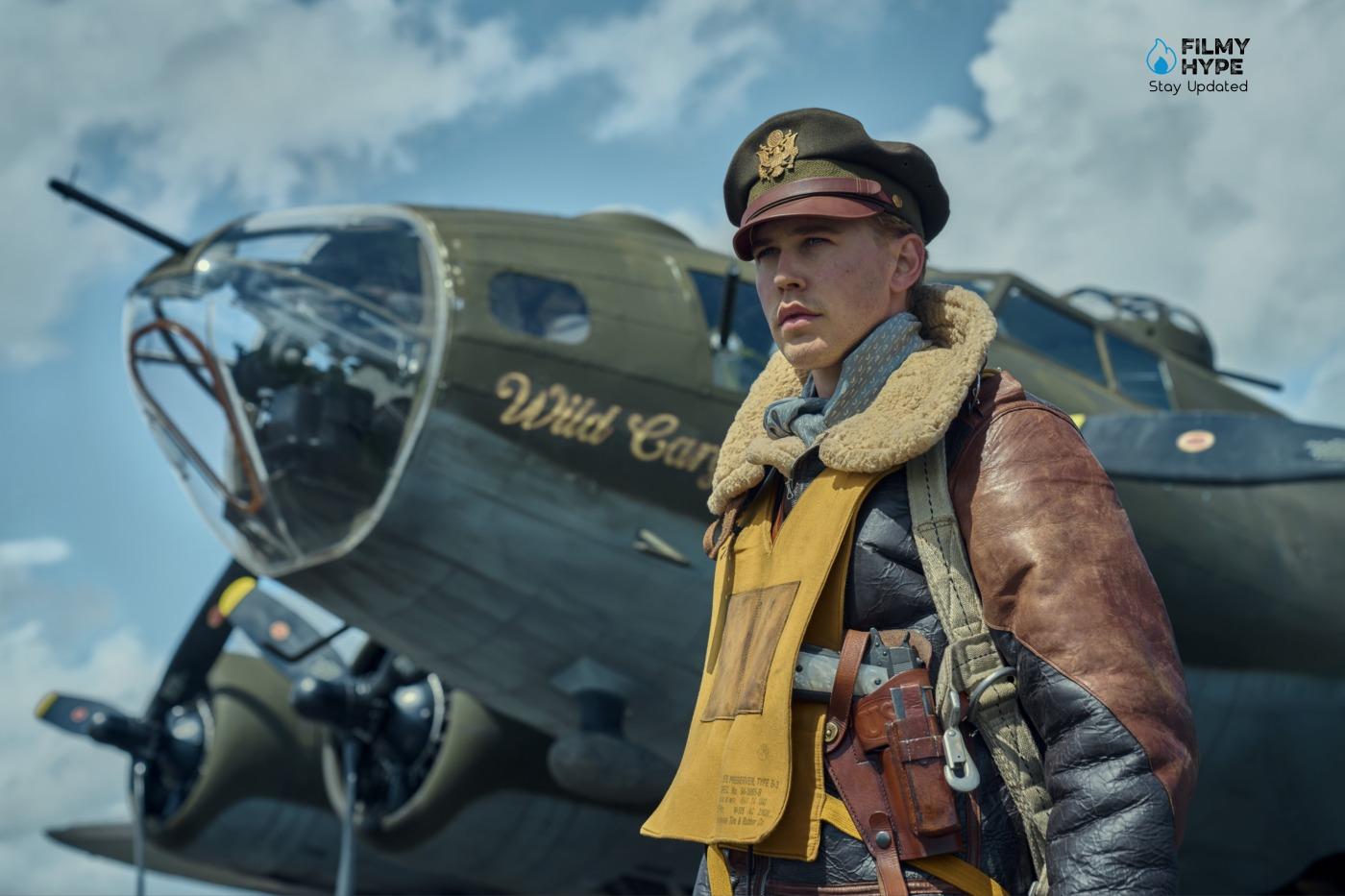
The first mission will take them to Bremen, to attack the shipyards of the Third Reich: right from the start, however, things will become much more difficult than expected, and the two Bucks will discover that there is nothing noble or heroic about the war, and it is very different from what they had imagined. From that moment, the series will make us more and more fond of these kids catapulted onto the “air front”, and forced to fight with an intangible enemy in their tiny metal cockpits. It is impossible not to empathize with the protagonists, and not feel a shiver of fear during the most intense battle scenes: Masters of the Air does not limit itself to giving us majestic sequences and meticulous attention to the image but leads us straight to the soul of the pilots of the “Bloody Hundredth”. At the same time, the miniseries confirms the trademark of Band of Brothers and The Pacific: a careful, meticulous, and decidedly out-of-the-ordinary historical reconstruction.
Masters of the Air Review and Analysis
The faces are those of the studio’s author register, not so much the already well-known Barry Keoghan and Austin Butler – always good, with the Elvis actor who continues to shock with the dissonance between his angelic appearance and his baritone voice -, as much as Callum Turner (known, but not yet enough, and also starring in 2023 for George Clooney in The Boys in the Boat ) and even more so as his colleague Anthony Boyle. The relationships they weave have the fraternal and indissoluble nature of the characters of his cinema, be they between humans and aliens (ET), spies and spy clashes (Bridge of Spies) or, to stay on topic, comrades with comrades (Saving Private Ryan). But if Spielberg’s classic touch is an added value in his films, in the hands of Shiban and Orloff it flattens the shot a bit, allowing itself to be outclassed by the mammoth structure of an out-of-scale seriality, which tends to lose altitude in flying after so many characters, especially to an equally stratified historical framework.
A traditionalism that doesn’t even help the adaptation of an audiovisual language that draws heavily from the masters John Ford and Howard Hawks, but which should be based on modern frequencies. Recalling the predecessors Band of Brothers and The Pacific, however seeking its own identity, despite the inspiration of those who came before. In any case, Masters of the Air is an exemplary product that increasingly narrows the distance between the small and big screen. Proof that you can soar by lifting yourself off the ground, raising the bar higher each time. So the virile friendship between the two protagonists Gale Cleven (Austin Butler) and John Egan (Callum Turner) becomes the last bastion of defense against the abyss, the irrationality of conflict, and the disarming simplicity of death in battle. Once the viewer introjects this feeling of silent but powerful brotherhood – and we assure you that it happens from the first episode – the common dialogues between the various characters lose any rhetoric and become real, exciting like the words that those who must exchange despite everything, be strong with each other.
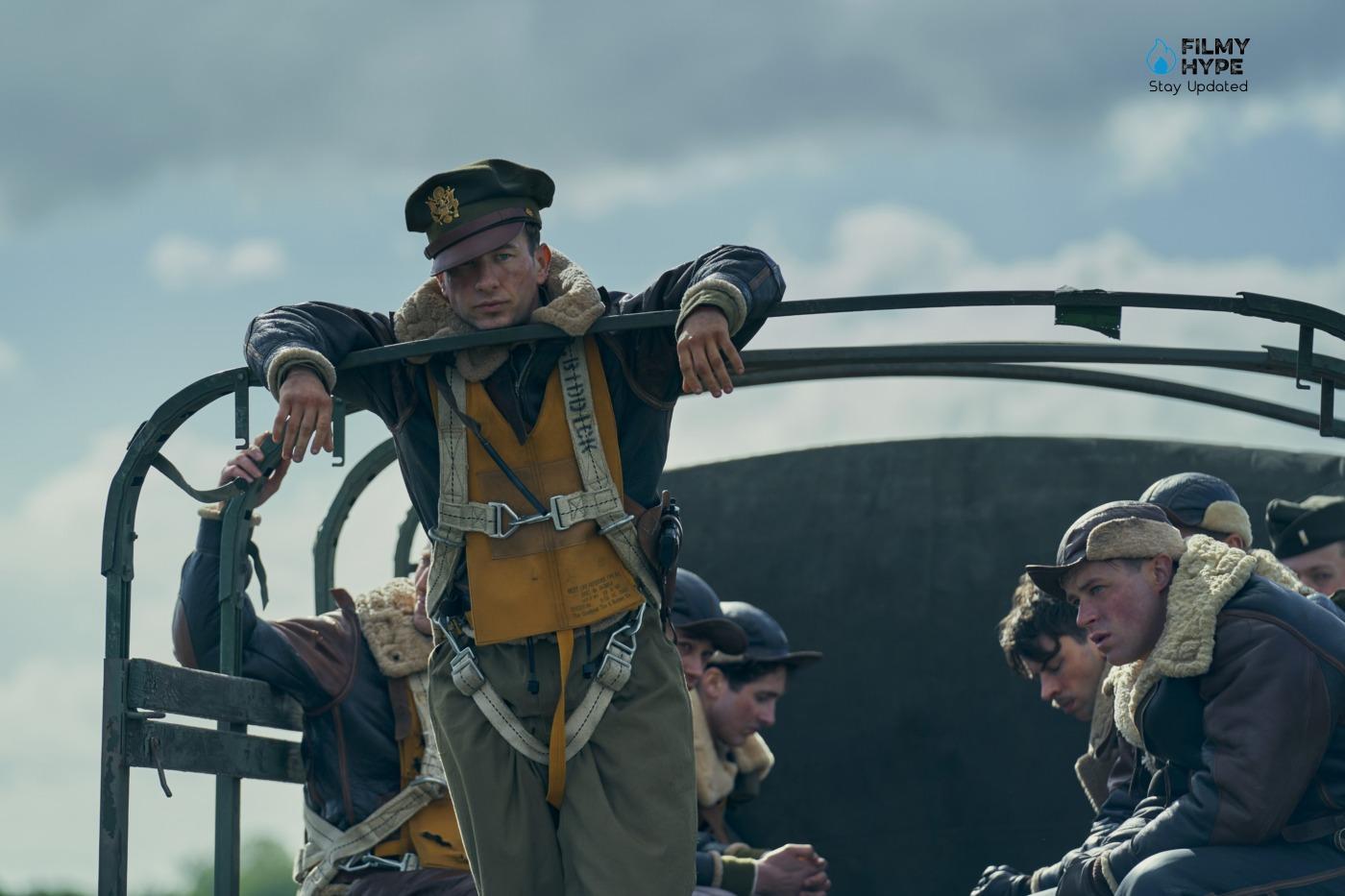
Masters of the Air manages to imbue words and gestures that we have seen so many times on the big and small screen with a deep and dense meaning, giving us, as has rarely happened in recent years of series, the beauty and pain of being ordinary people. If Austin Butler confirms an indisputable stage presence and the ability to show the hidden folds of his character, the beating heart of the miniseries is undoubtedly Callum Turner, perfect in portraying a soldier who faces the inevitability of conflict through a range of behaviors and emotions expressed fully. John Egan is the cheeky hero of Master of the Air, thanks to a well-rounded character but above all thanks to the actor who plays him. But these two are the “heroes” of the show, the protagonists who serve to drive the story. In the rear – but not too much – there are the soldiers who fight with the courage and skills they possess. In short, the faces, the common men that Spielberg, Hanks, and the other minds behind the miniseries want to honor. If they did so well in Band of Brothers (think of the character of Damien Lewis) and The Pacific (James Badge Dale or Jon Bernthal), Masters of the Air is certainly no exception.
So the very human faces of Anthony Boyle and Nate Mann will settle in the emotional memory of the public, capable of giving enormous power to their respective characters. Not to mention the extraordinary participation of Barry Keoghan. If the last episode of the show did not contain a propaganda sequence that was too explicit and neither necessary nor acceptable – the personal opinion of the writer – Masters of the Air would have easily achieved the maximum number of stars granted for a review. Because it is a majestic spectacle but above all an unforgettable human fresco. As mentioned at the beginning, Steven and Tom have done it once again…
The miniseries is full of warm and sumptuous images broken up by the violence of the fighting and a story that, like the conflict it stages, makes no concessions regarding the victims and chooses tones and narrative dynamics that reflect how television narration is changed since 2001’s Band of Brothers, and it is the second thing that stands out most about the miniseries, namely that the group of main characters is large and above all more complex, it is no longer a band of brothers besieged by the Nazis or isolated by hostile nature, the relationships between them are articulated in narrative lines that range, move away and bring each other closer, covering the European space and narrative registers. Masters of the Air, which also abounds in magnificent aerial battles, in which we note the sincere enjoyment of the producers and filmmakers (four directors, including Cary Joji Fukunaga), lasts for about half its running time (about an hour on average per episode) outside the battlefield.
Telling the story of the soldier’s relationship with power and bureaucracy, the macho dynamics that we have learned to know, and which in this case, speaking of airline pilots, cannot fail to recall Top Gun, which comes soon placed in contrast to the female presence. Above all it is interesting, and it is perhaps the most beautiful thing in terms of screenplay (the two creators of the series, John Orloff and John Shiban write the scripts of each episode), the description of the aviators dealing with the world, with love, with civil life trying to survive in cities far from bombs and deaths, yet torn apart by them, like France ferociously divided into an occupied zone and an open zone, Germany and Central Europe in which to try to escape from Nazism to create pockets of resistance, the mention of Jewish persecution and concentration camps; the eighth episode is then entirely dedicated to a battalion of African-American soldiers, led by second lieutenant Daniels (Ncuti Gatwa, the current Doctor Who in charge), to tell the story of how the army used and abandoned them.
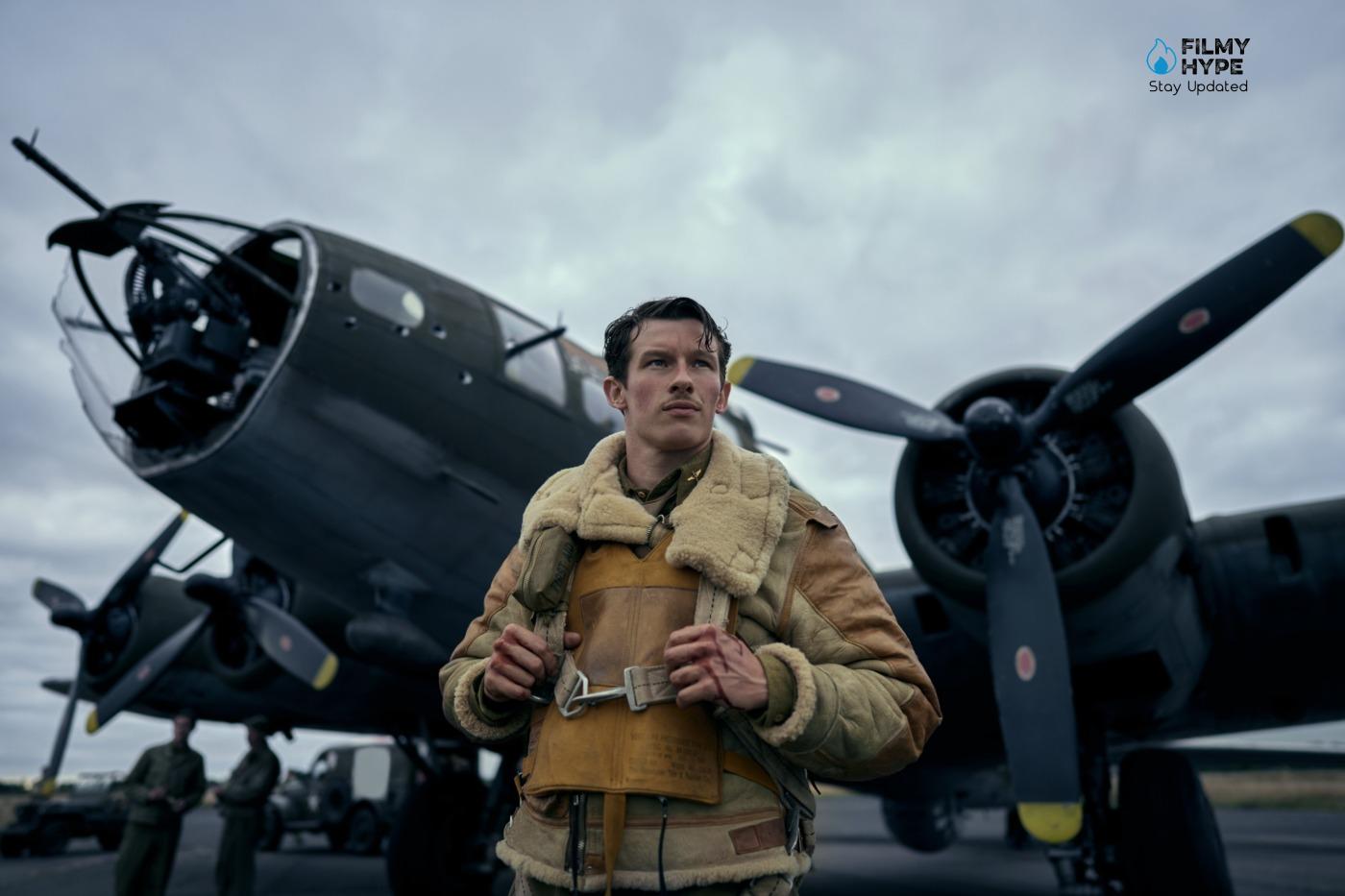
Masters of the Air nourishes the ambition of telling a rather broad and complete cross-section of the Second World War, but at the same time, it is complementary to the other two miniseries, like an altarpiece compared to a complete triptych, as if it were a synthesis of the two others and an in-depth analysis of them. This is perhaps the strong point and at the same time the greatest limitation of the product curated by Gary Goetzman as showrunner, because the miniseries gains in breadth and complexity what it loses in the density of story and depth, it seems to want to look beyond its boundaries and play with different nuances and settings, as if to show the war from a more defined perspective but risks losing some characters here and there, bordering on a certain superficiality, given that some of the narrative lines chosen would probably have deserved a separate series.
Therefore, if the mammoth narration sometimes makes the story lose the right pace, the direction and production take refuge in the magnificence of the spectacular element, guaranteed by the professionalism of the crew and above all by the very large army of visual effects artists who mix optical and digital tricks they made almost every dogfight a small miracle. A choice that may raise some doubts, because if the series, like its older sisters, has never had anti-militarist or pacifist pretensions, the use of war adventure as a shortcut could raise eyebrows. Despite some doubts, however, Masters of the Air is one of those products capable of taking the sense of the small screen a little further, in terms of resources and aspirations, compared to the boundaries we have assigned to it so far.
We know him for the legendary first season of True Detective and for the excellent miniseries Maniac, and it is a joy for the eyes to finally see him again at the helm of a quality TV series after his recent cinematic experiences. We are talking about the formidable Cary Joji Fukunaga, who leaves an indelible mark on the staging of the series and the technical-cinematic sector, directing the first four episodes and giving us truly unprecedented emotions, both on the small and big screen. Even in an overall very risky and heavily inflated sector like that of war cinema, Fukunaga’s expert hand can certainly be felt: the emotions that shine through the rapid and pressing aerial battles of Masters of the Air are intense and authentic and do more reliance on verisimilitude rather than on spectacularization or bombastic special effects. The impression is that of truly finding yourself catapulted into the cockpit of a B-17 “Flying Fortress” of the time, in an experience that is both majestic and claustrophobic, historically rigorous and genuinely human.
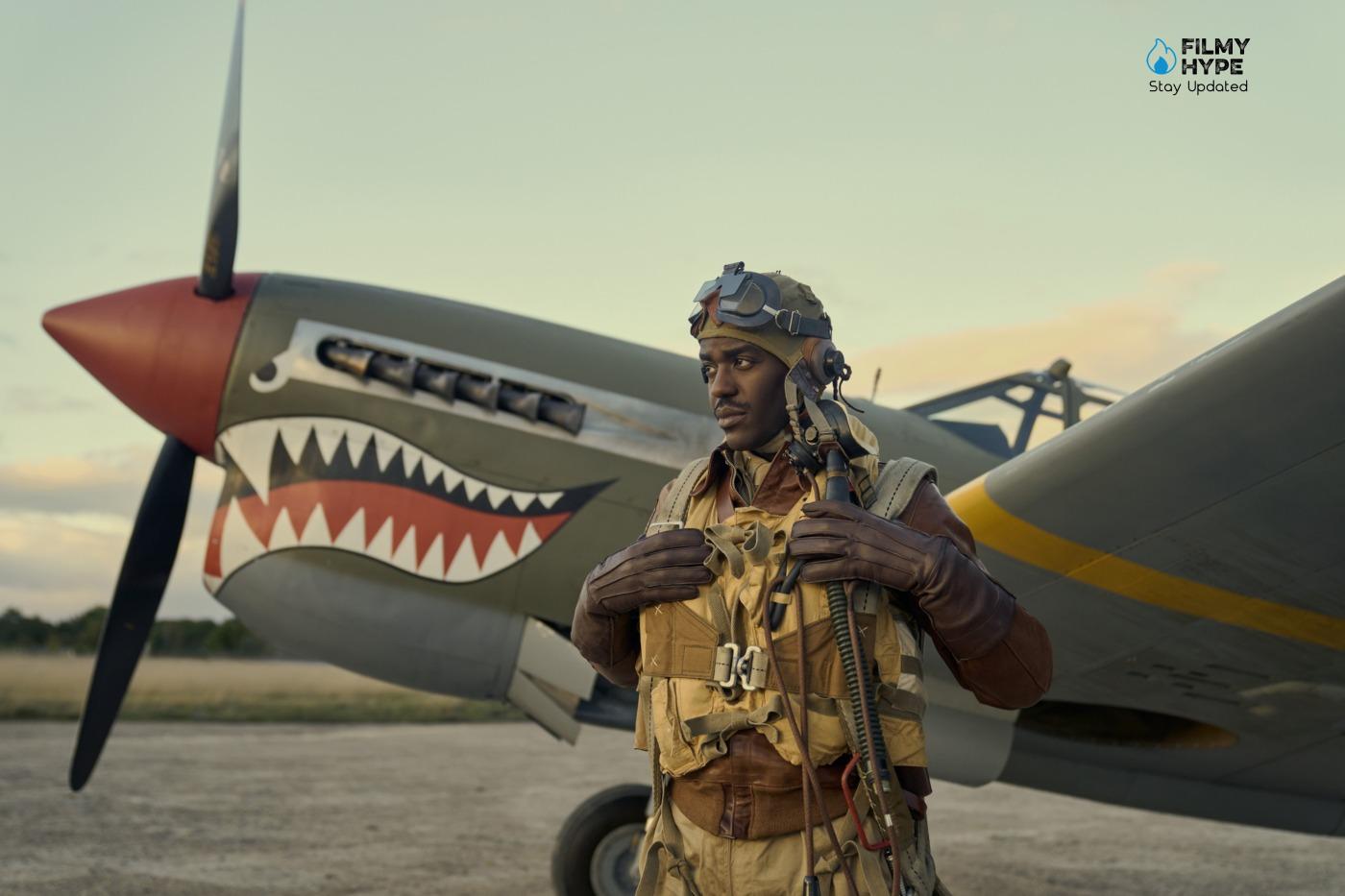
Fukunaga’s direction proves to be the key to consecrating Masters of the Air among the best series of the genre and allows the courageous Apple TV+ series to authoritatively take up the heavy baton of its cumbersome predecessors. Once again, the platform made in Cupertino has produced an excellent title, yet another in its promising catalog. A very high-cost production, around 250 million dollars, for a spectacular result, just look at the superb action sequences, and the aerial battles created with perfect CGI and directed, in the first four episodes, by the talented director Cary Joji Fukunaga. A very high-level thanks also to the performances of the protagonists, primarily Austin Butler, already extraordinary Elvis in Baz Luhrmann’s biopic, and Barry Keoghan, pure talent and actor of the moment thanks also to the much-criticized film-scandal Saltburn by Emerald Fennell, who manage to render the sacrifice of the protagonists with great intensity.
Masters of the Air Review: The Last Words
Masters of the Air does not disappoint expectations and gives us a masterpiece of vivid humanity, historiographical rigor, and high cinematic quality that completes the trilogy inaugurated by Band of Brothers in the best possible way. Despite its minor flaws, Masters of the Air is a gripping and emotionally resonant miniseries that serves as a powerful testament to the bravery and sacrifice of the men who flew the skies during World War II. It’s a must-watch for fans of the genre and anyone seeking a well-crafted drama with something to say about the human cost of war.





